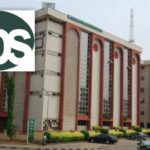The National Bureau of Statistics (NBS) has reported that four out of every 10 Nigerians are poor.
The executive summary of the 2019 Poverty and Inequality in Nigeria released on Monday by the NBS showed that 40.1 percent of Nigeria’s total population was classified as poor.
This translates to over 82.9 million Nigerians who are considered poor by national standards.
- Africa’s three richest men wealthier than 650 million poorest in continent – Oxfam
- Half of the Nigerian population in extreme poverty — Omo-Agege
The executive summary, which the NBS said it would publish the full report at a later date, showed that on average 4 out of 10 individuals in Nigeria have real per capita expenditures below N137,430 (approximately 353 US dollars) per year.
NBS revealed that this number excluded the state of Borno, explaining that while the report included households from Borno, that sample was not representative of the whole state since only households from “accessible” (safe to visit areas only) were interviewed.
“Thus, the Borno sample is considered non-random and non-representative,” the report said.
Meanwhile, Daily Trust observed the top three state with the highest poverty rates to be Sokoto with 87.73 percent, Taraba with 87.72 percent and Jigawa with 87.02 percent.
The top three states with the least poverty rates included Lagos (4.5 percent), Delta (6.0 percent) and Osun (8.5 percent).
25% of global destitute may live in Nigeria – W/Bank
Meanwhile, the World Bank had last December in its ‘2019 Nigeria Economic Update’ Report, warned the Nigerian authorities that the number of Nigerians living in extreme poverty may increase by more than 30 million by 2030.
The Breton Wood institution warned that Nigeria would be home to 25 percent of the world’s destitute people if the government fails to revive economic growth and create jobs.
As a remedial strategy to reduce the poverty level in the country, the bank urged the present administration to increase domestic revenue, remove trade restrictions and fuel subsidies and improve the predictability of economic policy.
In another report titled, ‘2019 Nigeria Economic Update Report’ published early December last year, the bank cautioned “Economic and demographic projections highlight the urgent need for reform
“With population growth (estimated at 2. 6 per cent) outpacing economic growth in a context of weak job creation, per capita income is falling. Today, an estimated 100 million Nigerians live on less than $1. 90 per day.”

 Join Daily Trust WhatsApp Community For Quick Access To News and Happenings Around You.
Join Daily Trust WhatsApp Community For Quick Access To News and Happenings Around You.

